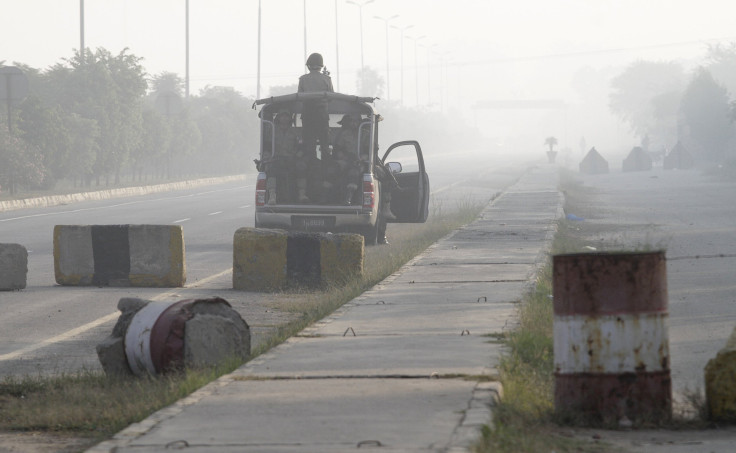Pakistan's North Waziristan Problem: Wagah Blast Casts Doubts Over Army Offensive Against Militancy

At least 60 people were killed and over 150 were injured when a suicide bomber blew himself up near Pakistan's eastern border with India on Sunday in one of the deadliest attacks in Pakistan in recent years. Following the attack, the flag-lowering ceremony, which takes place every evening at the border in Wagah, has been suspended for a period of three days, making it the first such instance since the two countries went to war in 1971, according to media reports.
The latest attack comes at a time of heightened tensions between India and Pakistan, caused by a recent uptick in cross-border shelling along the disputed frontier in Kashmir -- about 425 miles north of the Wagah border near the Pakistani city of Lahore. But, the blast has highlighted an entirely different internal conflict in Pakistan completely removed from the country's long-running conflict with India.
Ehsanullah Ehsan, a spokesperson for the TTP-affiliated Jamaat-ul-Ahrar, said on Twitter: “This is the start of attacks,” adding: “The attack is the revenge of those innocent people who have been killed by Pakistani army, particularly those killed in North Waziristan.”
Two different militant groups claimed responsibility for the blast, reportedly terming it a reaction to the Pakistani military’s campaign against the Tehreek-e-Taliban Pakistan, or TTP, in the group's heartland in North Waziristan. Militants of Jundallah, an al Qaeda-linked group that was behind the killing of at least 78 Christians at a church in Peshawar in September last year, reportedly claimed responsibility for the blast, while Jamaat ul-Ahrar, affiliated to the Pakistani Taliban, also claimed responsibility.
North Waziristan is believed to be one of the last strongholds of the TTP and its local and international affiliates. And, almost all of the major attacks carried out in Pakistan and Afghanistan in recent years have been traced to groups based in this region.
In response, the Pakistani military launched an offensive in North Waziristan -- aided by American drone strikes -- named Operation Zarb-e-Azb in June, targeting militants of TTP, al Qaeda and the Islamic Movement of Uzbekistan. At least 30,000 soldiers of the Pakistani army are reportedly involved in the offensive.
According to a report by Foreign Policy magazine, more than 500 militants have been killed so far by the Pakistani military in the region. However, Sunday’s attack has cast doubts over the effectiveness of the campaign in North Waziristan.
“One really doesn’t know what is happening,” Khalid Aziz, a former chief secretary of Khyber-Pakhtunkhwa Province in North Waziristan, told The New York Times. “Very little real operational detail is coming out. The army says it has killed hundreds of people, including Uzbeks. But who, exactly, are they?”
Moreover, since the start of the operation in North Waziristan, over half a million people have moved out of the region. The army’s intensified focus on the offensive has also forced militants to shift base to other cities in Pakistan and provided them an opportunity to carry out attacks in other parts of the country, including Lahore and Islamabad, according to media reports.
However, Khalid Munir, a Pakistani security analyst, reportedly suggested that the latest attack is a sign of growing desperation among militants of the Pakistani Taliban.
“The militants are on the run. They can attack but not as frequently as before,” Munir told The Wall Street Journal, adding that the Taliban’s command-and-control base in North Waziristan had been completely destroyed.
© Copyright IBTimes 2024. All rights reserved.






















